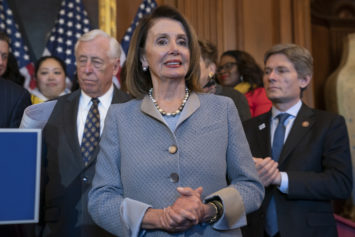While the latest Gallup poll confirmed that the number of uninsured in the U.S. has dropped by several million, media reports have revealed that many states are now allowing prison inmates to sign up for Obamacare to reduce costs—which may also decrease recidivism over the long term.
The Obamacare Gallup numbers come just 21 days before the deadline to sign up this year, so the numbers of uninsured are expected to decrease even more before the end of March. According to the Gallup-Healthways Well-Being Index, which was released today, 15.9 percent of U.S. adults reported being uninsured, which is down from 17.1 percent for the last three months of 2013.
The numbers translate to roughly to 3 million to 4 million additional people getting coverage. That number is quite a bit lower than the 4 million people the federal government is claiming have signed up for private coverage and 9 million for Medicaid, but the government’s numbers include people who already had health insurance and switched to coverage offered under the law. In addition, the government’s numbers include children; Gallup polls just adults.
Gallup is considered one of the most authoritative in the country because pollsters interview 500 people a day, 350 days a year, which means the results are based on more than 28,000 interviews—about 28 times as many as in a standard national poll.
The number of uninsured is the lowest tracked by Gallup since 2008, before Obama took office and when the national recession was just beginning. Latinos lagged behind the other ethnic groups in getting coverage—the uninsured rate was down by 2.6 percentage points among Blacks, down by 1 percentage point among whites, and down by just eight-tenths of a percentage point among Latinos.
Analysts say Latinos are a relatively young population and many hold down jobs that don’t come with health insurance. In addition, the outreach effort to many Latinos had problems initially because of delays with the Spanish-language enrollment website, CuidadodeSalud.gov.
To get the Latino numbers up, the Obama administration is making a special pitch to the community as the deadline nears. He was on Spanish-language television networks last week to raise awareness.
Though there hasn’t been much media attention paid to inmates under the healthcare law, prisons around the country are signing up inmates under the expansion of Medicaid that allows states to extend coverage to single and childless adults.
Medicaid doesn’t cover standard health care for inmates, but it does pay for their hospital stays beyond 24 hours — meaning states can transfer millions of dollars of obligations to the federal government. In addition, inmates who are enrolled in Medicaid while in jail or prison can have coverage after they get out, when they have disproportionately high rates of chronic diseases, especially mental illness and addictive disorders.
“For those newly covered, it will open up treatment doors for them” and potentially save money in the long run by reducing recidivism, Dr. Fred Osher, director of health systems and services policy for the Council of State Governments Justice Center, told the New York Times.
Osher said a 2009 study in Washington State found that low-income adults who received treatment for addiction had significantly fewer arrests than those who were untreated.
But Obamacare opponents say that while the development may lighten state budgets, it will deepen the federal deficit—in addition to raising more public relations problems for the Affordable Care Act.
“There can be little doubt that it would be controversial if it was widely understood that a substantial proportion of the Medicaid expansion that taxpayers are funding would be directed toward convicted criminals,” Avik Roy, a senior fellow at the Manhattan Institute, a conservative policy group, told the Times.

